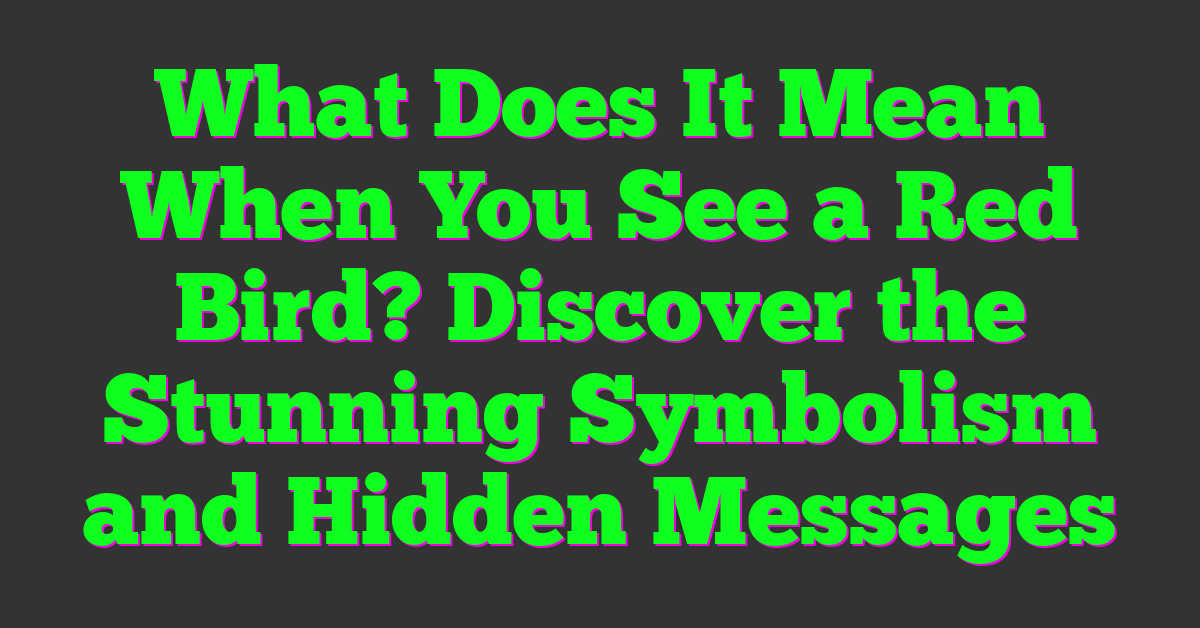You’ve probably noticed how some numbers seem to pop up everywhere, sparking curiosity or even a bit of unease. The number 23 is one of those mysterious figures that’s captured people’s imaginations for years. From movies to everyday conversations, it’s often linked to strange coincidences and quirky beliefs.
Whether you think it’s just a number or something more, the stories and superstitions around 23 are fascinating. They show how we humans love finding patterns and meaning in the world around us. Let’s dive into why the number 23 has become such a modern symbol of mystery and superstition.
The Symbolism of Number 23 in History and Culture
The number 23 carries deep symbolism across history and culture, standing at the intersection of mystery, curiosity, and meaning. You’ll find its presence in historical texts and cultural narratives, each adding layers to its enigmatic reputation.
Historical Context of Number 23
Throughout history, the number 23 appears in significant and sometimes mystical contexts. Ancient calendars, such as the Mayan and Celtic systems, marked the number 23 as important for cycles and celestial events. Egyptian mythology linked the number to divine timing and cosmic order, where 23 represented a balance between light and darkness. In Renaissance Europe, scholars studied 23 for its mathematical uniqueness—it’s the ninth prime number and appears in the Fibonacci sequence’s relationships, enhancing its mystical allure. You’ll notice that 23 also emerges in Shakespeare’s life, with speculation about his birthdate and works connecting symbolically to 23, which some interpret as coded messages or hidden meanings.

Cultural References and Meanings
Different cultures assign varied meanings to 23, often tied to transformation and unpredictability. In modern Western culture, 23 became a symbol of chance and coincidence, popularized by literature and film—especially in works like “The Number 23” movie, where the number embodies obsession and fate. Numerology views 23 as a blend of 2 (duality, partnership) and 3 (communication, creativity), thus representing dynamic balance and change. In Asian cultures, while not universally significant, 23 sometimes appears in folklore associated with spiritual journeys or tests of fate. You’ll also encounter 23 in esoteric traditions as a number bridging the physical and spiritual worlds, serving as a portal for insight or transformation when it appears repeatedly in dreams or signs.
The Rise of Number 23 in Modern Superstitions
The number 23 gained prominence in recent decades as a potent symbol in modern superstitions. Its mystique deepened through media exposure and psychological fascination, reinforcing its role in contemporary symbolic thought.
Popular Media and the Number 23
Movies, books, and television shows often spotlight 23 as a gateway to mystery and hidden truths. Films like The Number 23 center on obsession with this number, portraying it as both ominous and revealing. Authors embed 23 into plots involving conspiracy, fate, and cosmic coincidence. These narratives influence your perception, making 23 seem omnipresent and loaded with secret meanings. Documentaries and online forums further amplify its allure by linking 23 to unexplained events and coincidences. This media saturation creates a feedback loop where stories about 23 encourage you to notice it more in everyday life.
Psychological Effects of the Number 23 Belief
Belief in the power of 23 taps into your brain’s pattern recognition abilities. When you expect to see 23, your mind highlights its occurrences, a phenomenon called confirmation bias. This selective attention makes 23 appear significant even when its presence is random. The psychological effect extends to superstition, where 23 becomes a symbol of fate or warning, shaping decisions and feelings. For some, 23 arouses curiosity and a sense of cosmic connection; for others, it sparks anxiety or caution. This dynamic reveals how numbers like 23 function as psychological tools that mediate your understanding of chance, meaning, and control in an unpredictable world.
Common Superstitions Associated with Number 23
You encounter the number 23 frequently in discussions about luck, fate, and hidden meanings. Various beliefs and mystical interpretations link 23 to both good fortune and mystery, reflecting its evolving role in modern superstition.
Number 23 and Luck
You discover 23 often viewed as a number tied to chance and fortune. In many cultures, 23 appears as a symbol of unexpected luck or turning points. Athletes and gamblers sometimes favor 23, believing it brings favorable outcomes during competitions or betting. This belief stems partly from the number’s unpredictable nature, which mirrors the randomness of luck itself. However, the number also carries warnings in some traditions, where encountering 23 repeatedly is seen as a sign to be cautious of sudden changes. You recognize this duality as central to 23’s superstition—both a harbinger of fortune and a reminder of fate’s unpredictability.
| Aspect | Symbolism with 23 |
|---|---|
| Good fortune | Sudden luck, positive change |
| Caution | Unpredictable shifts, warnings |
| Popular usage | Sports jerseys, lottery picks |
Number 23 in Numerology and Mysticism
You find that numerology assigns 23 a powerful blend of energies. It combines the adventurous, youthful spirit of 2 with the creativity and expression of 3, resulting in a number that symbolizes innovation and transformation. In mystical thought, 23 acts as a bridge between polarities—balance and chaos, known and unknown. Many practitioners interpret 23 as a gateway to deeper spiritual awareness, encouraging personal growth through embracing uncertainty. This aligns with its historical associations in myths and occult traditions, where 23 signifies a secret path toward enlightenment or revelation. You use these mystical frameworks to understand why 23 captures the human imagination as a number charged with hidden potential and mystery.
Scientific Perspectives on Number-Based Superstitions
Exploring the scientific views on number-based superstitions clarifies why numbers like 23 gain symbolic weight in modern culture. Understanding cognitive processes and myth origins helps demystify these beliefs.
Cognitive Biases and Pattern Recognition
Humans naturally seek patterns to make sense of their world. You notice connections where random events align closely because your brain favors meaningful patterns. This is called apophenia. For example, when you see the number 23 repeatedly during important events, your mind links those moments—not because of supernatural forces, but because you focus on the number more after its initial significance.
Confirmation bias deepens this effect. Once you believe 23 holds special meaning, you remember hits and forget misses related to it. Your attention narrows to confirm your belief. This selective recall makes coincidences appear as consistent proof rather than chance occurrences.
Pattern recognition evolved as a survival mechanism to detect threats and opportunities. Yet, applied to numbers, it encourages magical thinking. You imagine hidden messages in numeric sequences where none exist objectively. Recognizing this helps you approach superstitions with curiosity instead of unquestioned acceptance.
Debunking Myths Around Number 23
« Unlock the Hidden Power: The Symbolism of Number 777 Will Change How You See Luck and Spirituality
Unlock the Secret Power of Numbers in Baltic Mythology That Will Blow Your Mind »
The fascination with 23 often leads to exaggerated myths. You might hear claims linking 23 to conspiracies or cosmic secrets, but scientific scrutiny finds no basis for these narratives. The number 23 appears frequently simply because of probability and cultural attention, not due to mysterious forces.
Research in psychology and statistics shows that any number can seem significant if you give it enough focus. For instance, in large datasets, coincidences involving 23 emerge naturally. Skepticism reveals that these patterns stem from randomness enhanced by your mind’s interpretive tendencies.
Additionally, numerology assigns symbolic meanings to 23, blending traits of numbers 2 and 3, yet these interpretations arise from tradition and subjective frameworks, not empirical evidence. Understanding the origins and cultural shaping of these myths empowers you to appreciate symbolism while keeping grounded in reality.
By examining cognitive biases and debunking exaggerated claims, you gain insight into how number-based superstitions form and persist. This knowledge enriches your understanding of symbolism, helping you explore it with balance and discernment.
The Impact of Number 23 on Society and Pop Culture
The number 23 has significantly influenced modern society and pop culture, embedding itself as a symbol brimming with mystery and intrigue. This symbolic vector connects through various media and social trends, deepening its role in collective consciousness.
Movies, Books, and TV Shows Featuring Number 23
Movies like The Number 23 showcase obsession with the number as a gateway to hidden truths. Books such as William S. Burroughs’ The Western Lands incorporate 23 as a motif of transformation and cosmic order. TV shows including Lost and The X-Files integrate the number 23 into plots involving fate and coincidence, reinforcing its enigmatic aura. These narratives often portray 23 as a secret code or a cosmic sign, sparking curiosity and fascination among audiences worldwide.
Influence on Social Behavior and Trends
Superstitions tied to 23 influence social behavior, especially among athletes, gamblers, and fans who treat it as a symbol of luck or destiny. Sporting legends like Michael Jordan elevated the number’s status by wearing 23, which inspired its adoption in fan apparel and pop culture icons. Social media trends frequently spotlight 23 in challenges, numerology posts, and symbolic art, driving its popularity. This embedding of the number into daily life shapes beliefs about chance and control, making 23 a cultural emblem that resonates with your desire to find meaning in the unpredictable.
Conclusion
Whether you see 23 as a lucky charm or just a curious number, it’s clear that it holds a special place in modern culture and superstition. Its blend of mystery, history, and media influence makes it more than just digits—it’s a symbol that sparks your imagination and invites you to explore the unknown.
At the end of the day, how much meaning you give to 23 is entirely up to you. It’s a reminder that sometimes the stories we tell ourselves shape the way we experience the world, turning chance into something a little more magical.




